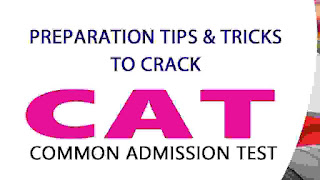How to Choose a Career- Choosing
a Career Which Suits you
Hello Dear
reader. My name is Pankaj Rattan (CEO: WISE TECH). Today I am going to share my
own experience on How to Choose a Career
which suits you best. This is very common question among youngster that which
career Suits me? My simple career advice
to them all to read this article carefully all of their doubts will be clear. Career
Guidance for all youngster who don’t know which is the best career for themselves.
Choosing a Career is never easy. That’s why I decide to share some views of
mine related to the career advice.
Today in the
evening I am just thinking about how I
choose my career?
After a long
though I decide to share my complete view related to the career guidance.
As we all
know there are thousands of career options, we always confuse to pick a career that's right
for us? If you are in the same state of mind that you don't have any idea
related to your career. You don’t know what you want to do? Then you have to think
about it. After you start thinking about it, there are batter chances
of making a good decision.
Here are Few Steps you should
think About before Choosing a Career:
Calculate About Yourself
First step
is to do some calculation about you. Before anyone of you choose the best
career, you must discover about yourself. It means you should know your
INTEREST, SOFT SKILLS, VALUES & most important APTITUDE. Your personality
type is one of the important factor.
There are
many Self-Assessment Tools online which are also well known as the Career Tests.
Use such tool to JUDGE yourself. After you are going through those Career Test
you should gathered all information about your Character.
Now next
step is to produce a listing of occupations which are a good fit based on your
Character.
Make a List of
Occupations to Explore
I am sure
that you have a several lists of occupations in front of you after going
through the self-assessment tools, which mean after going through the CAREER
TEST. Personally I go through these Career Tests many times before deciding
which the best career is for me. You can perform these career tests online for
free. Perform these career test based upon your education qualification.
1. Now your next task is to combine
them and make a master list for yourself.
2. Those Careers which comes in
multiple lists, you have to print them onto a blank white page.
3. Title them "Occupations to
Explore."
4. Now the next move is to search
any occupations on your lists that demand to you. Those occupations may be the careers
you know a bit about and want to discover further.
5. My personal thought is that you
should also include some new profession which you don’t know much. You will
surly learn something unexpected from those new professions. Add those careers
in your master list.
Discover the
Occupations on Your listing:
Collect the
some basic information about each of the occupations on your listing. After
this now you have a narrow list which contains 10 to 20 options! This list will
help you in deciding how to choose a Career?
After that
you have to find complete job descriptions related to the educational,
training and licensing requirements which is published in any sources. Use
government-produced labour market information to get data about
earnings and job outlook. There are many website on which you can find Government Jobs updates.
Conduct
Informational Interviews
After doing
all this now you have a small list of various occupations. Now you have to do
in-depth research related to each one of them for the best career. Go for the
interviews under which career you want to go.
Personally I
want to advise you to meet with people who work in the occupations in which you
are interested. These people will help you in providing knowledge about the
career under which you are going.
Now It’s Time To
Make A Career Choice Which You Preferred as Best
After doing
all these research work, I am pretty much sure that you are able to make the
best choice of your career. You have to choose the occupation which you think
will bring you the most happiness based on all the information you have
gathered. Understand that you are allowed to do this process over and over if
you change your mind related to your career.
NOTE:::PLEASE
DO THE REASEARCH BASED UPON YOUR SKILLS AND EDUCATION. Now I hope you i solved
your Question that Which is the Best career for Me ?
Thank you
for reading this. I hope you like this article related to the career Guidance.
Regard’s:
Pankaj Rattan





